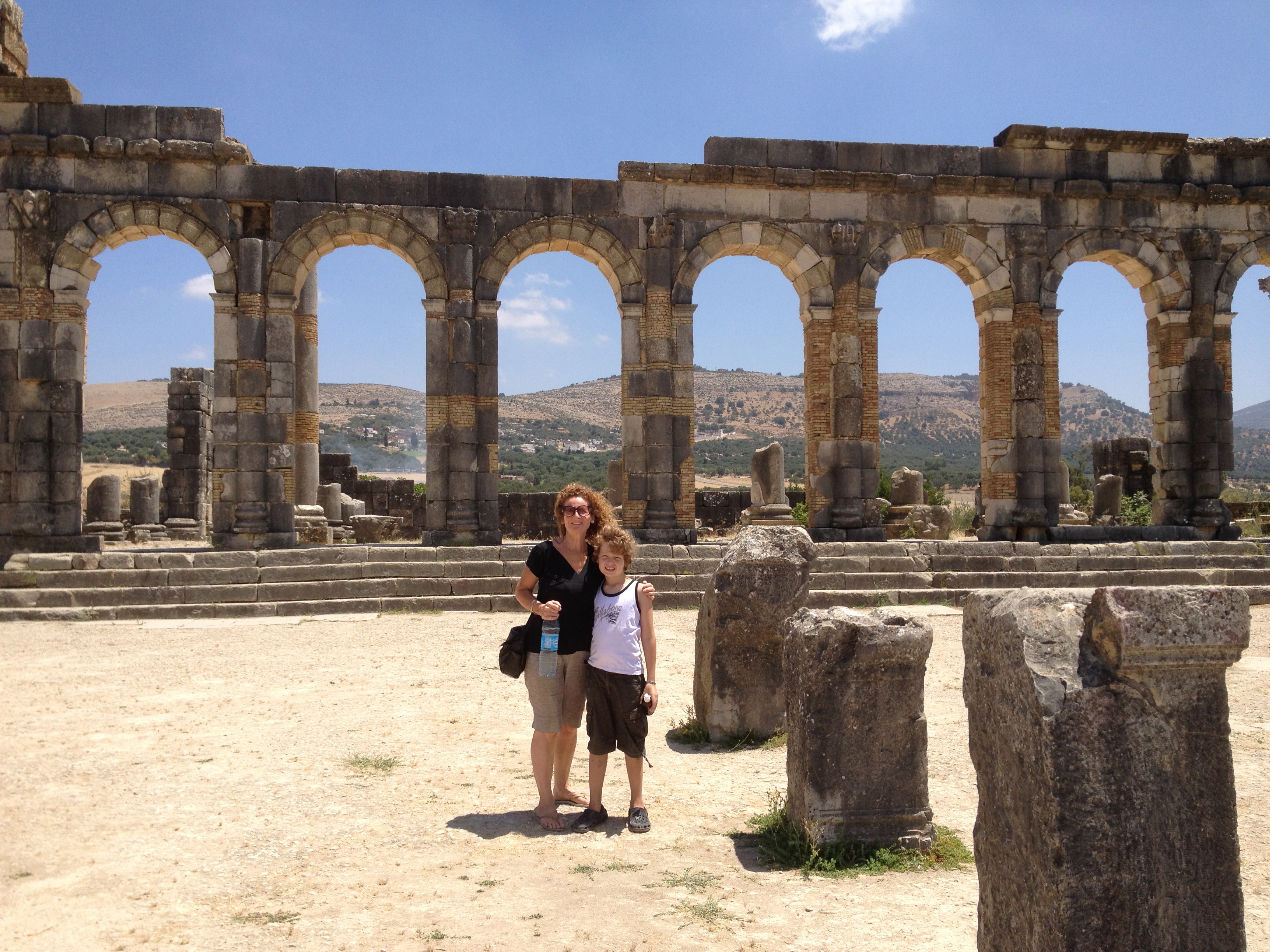
Volubilis and Moulay Idriss, Morocco
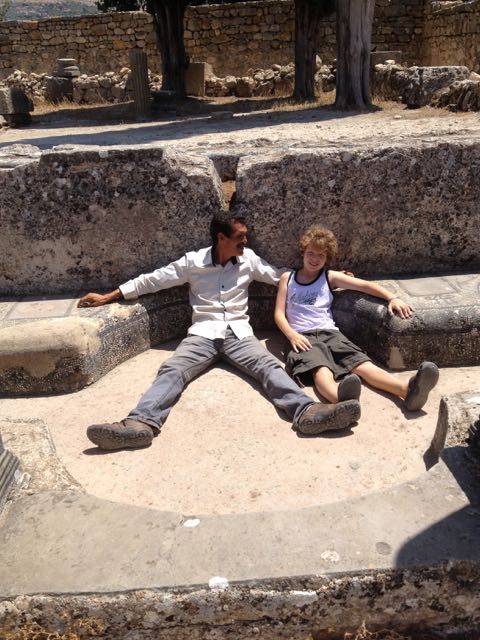
We have been in Meknes now for a day, and I try where possible to incorporate learning into our travels. In fact, we believe learning should be a natural part of travel, and I am disappointed when others just shop, eat and do the tourist thing. When in a country it is important to immerse yourself in culture, and local history, even if history bores you. We find once you get there, it is great to explore and learn. And besides, it feels good to learn!
So Explorason and I decide we will head to the hills after 2 people told us about a great UNESCO site.
We get a petit taxi for 7FH from the big square, and that takes us to the Grande Taxies. The problem starts here, that as soon as we hop out they all talk to each other about the price. There is always the main guy that haggles price, but often he is not the driver. So they start out at 500DH, and I already have been told to pay a maximum of 300DH. We go to walk off and he agrees on 250DH. One thing we were also told was to negotiate 1.5 hours at Volubilis, even though they will all tell you 1 hour is enough. So we include this in the deal.
So we sit in an old Mercedes, being driven through dry hills toward a fertile area in the hills, and soon there are many olive groves and cactus fruit sellers at the roadside.
Volubilis is a partly excavated Roman city in Morocco situated near Meknes between Fes and Rabat.
Once we arrive, our taxi driver tells us what time to get back and we are off. Note too, they will always try to get you to pay first. Do not do this. The last thing you want is to be stranded if they take off and you have paid.
When we arrive, it is strange that we go to the ticket office and he does not charge us any entry fee.
So we walk past a modern structure and here below are a series of columns and other displayed items.
You can clearly see the different style of columns here, and we meet a local man.
But he doesn’t speak English, so it is time we try some Spanish. I’m rusty on my not so good Spanish, but he is great, so he joins us. He races off and finds the leaf of a plant and shows us how it was used to inspire the form of these columns.
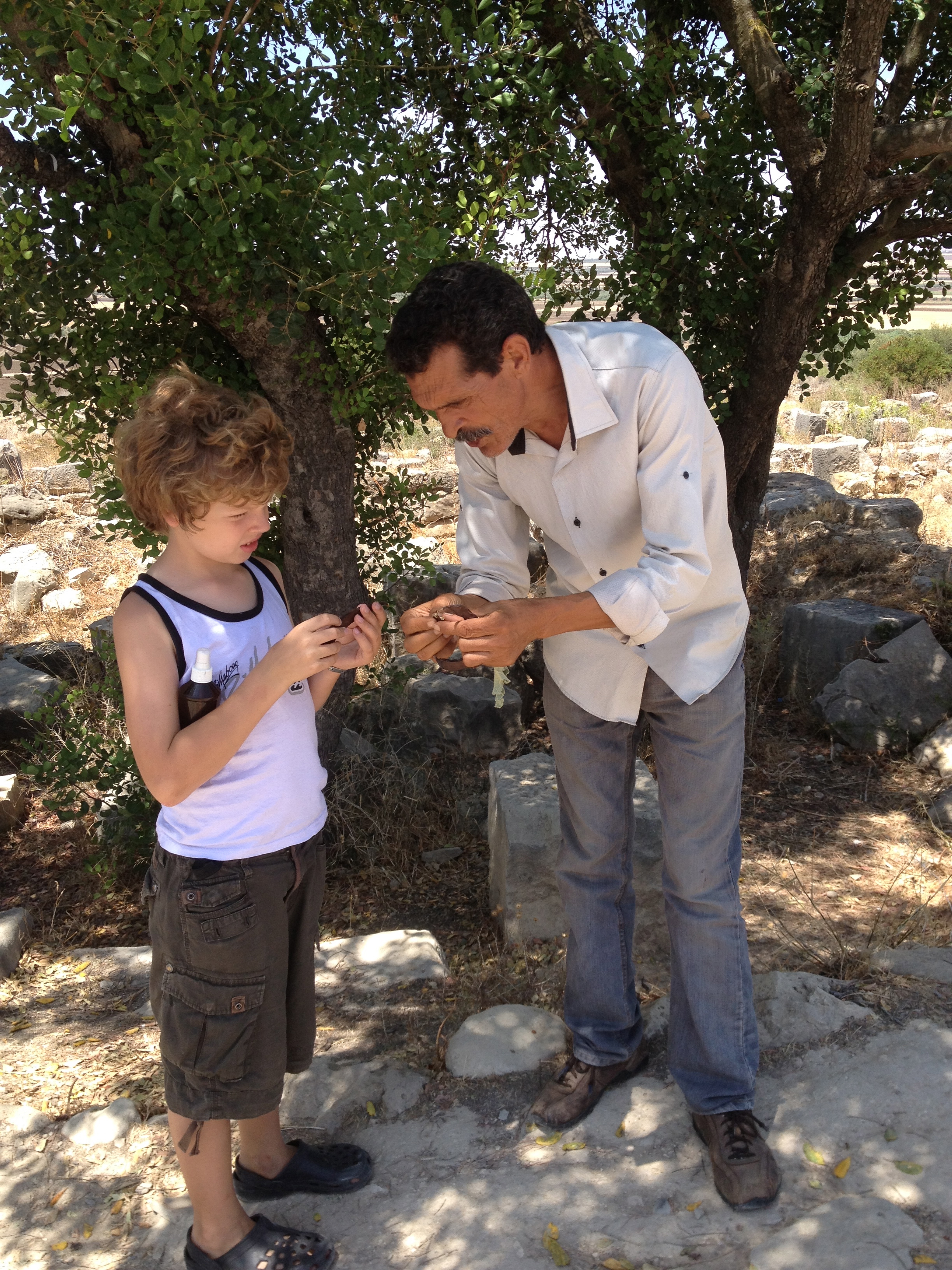
He teaches Explorason about different plants – they get along well. He is a great guide.
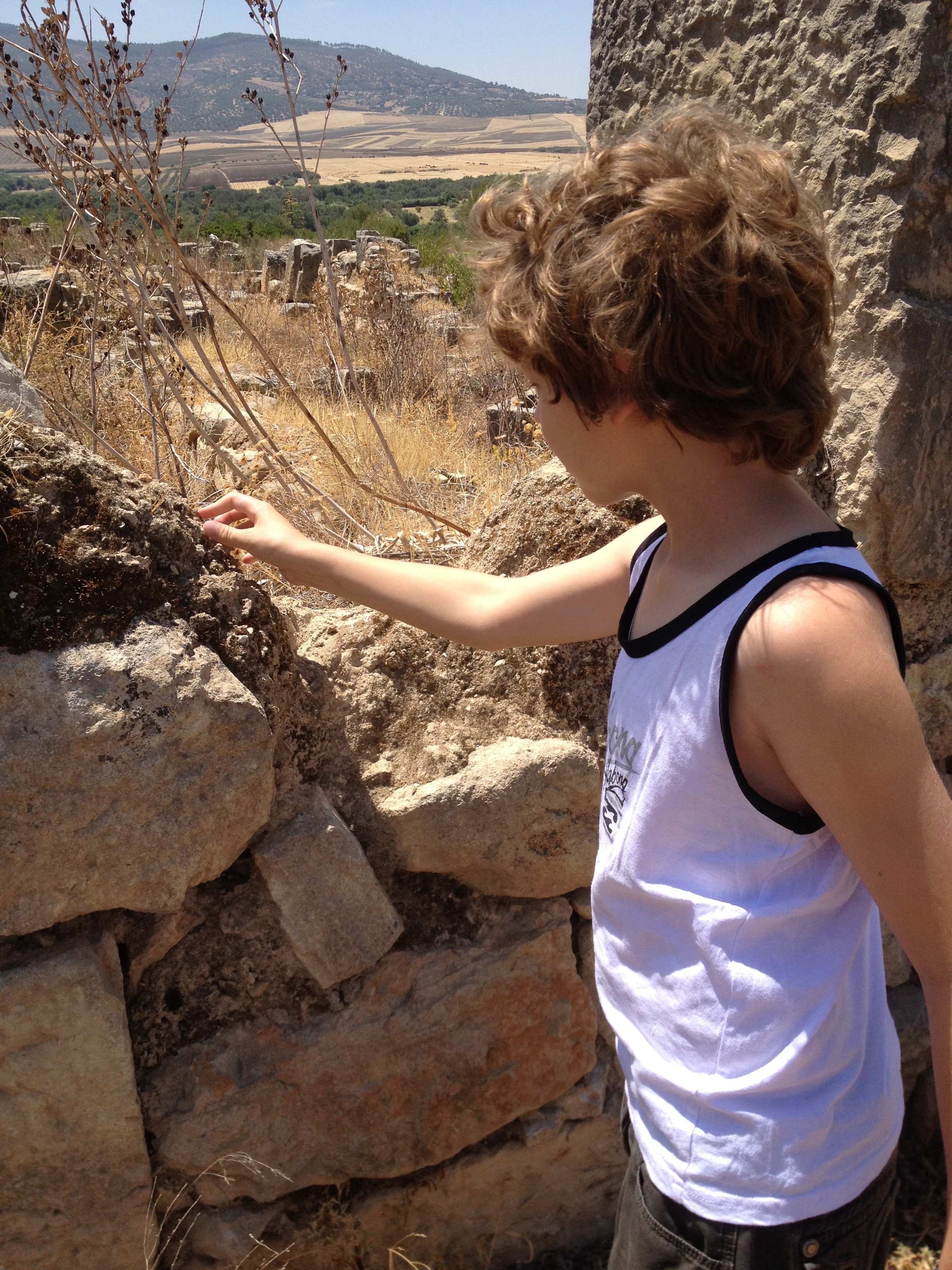
At the wall, he shows Explorason which is modern cement and which is the original and crumbling mix of 2000 years ago.

He points out all different parts of the city to us, including where the men and women socialized, and where who lived.
Built in a fertile agricultural area before the time of Christ, it was developed from the 3rd century BC onwards as a Phoenician settlement. It grew rapidly under Roman rule from the 1st century AD onwards and expanded to cover about 40 hectares (100 acres) with a 2.6 km (1.6 mi) circuit of walls so we learn.
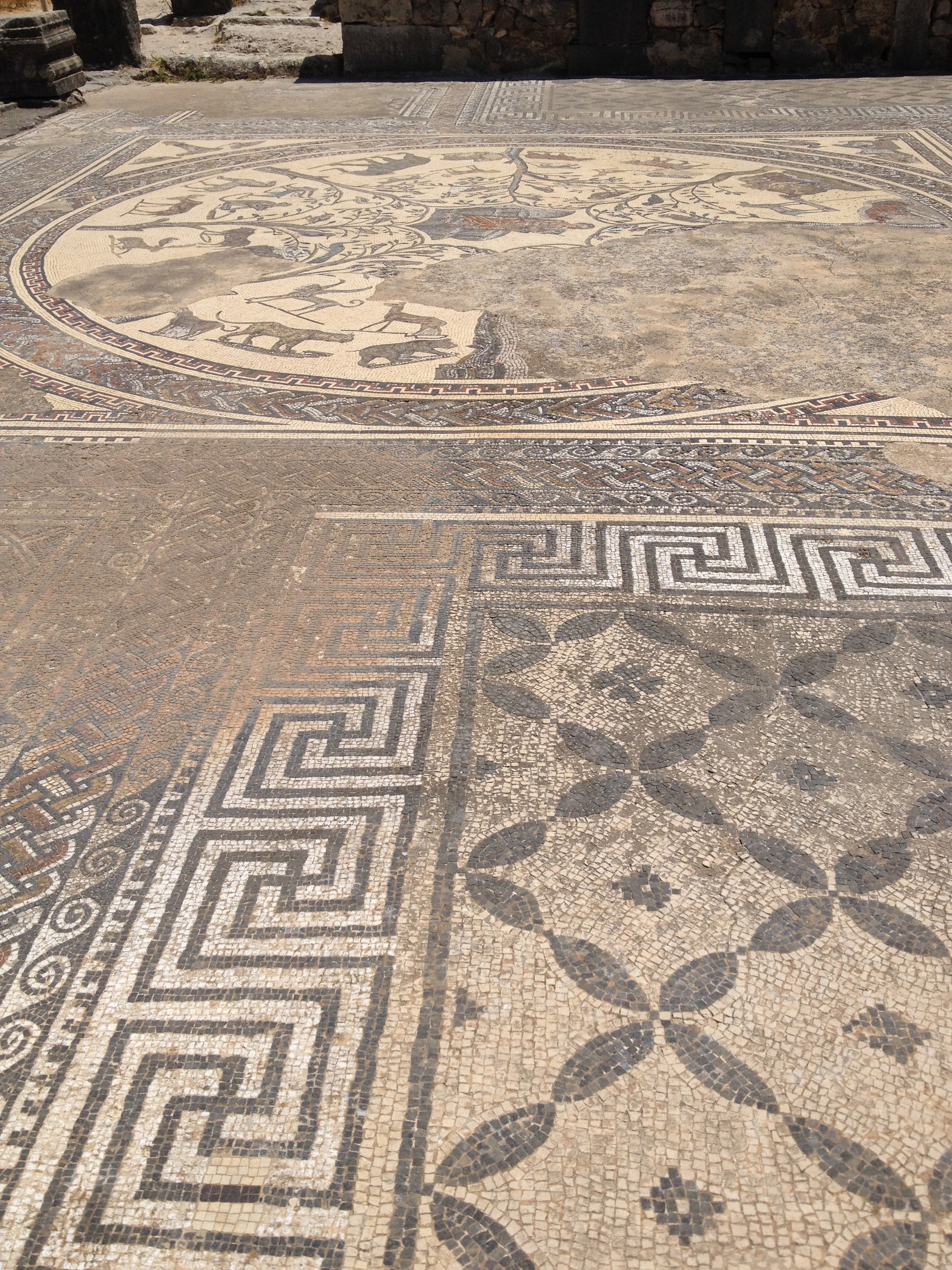
Here the detailed mosaic is clear to see and is in fantastic condition.
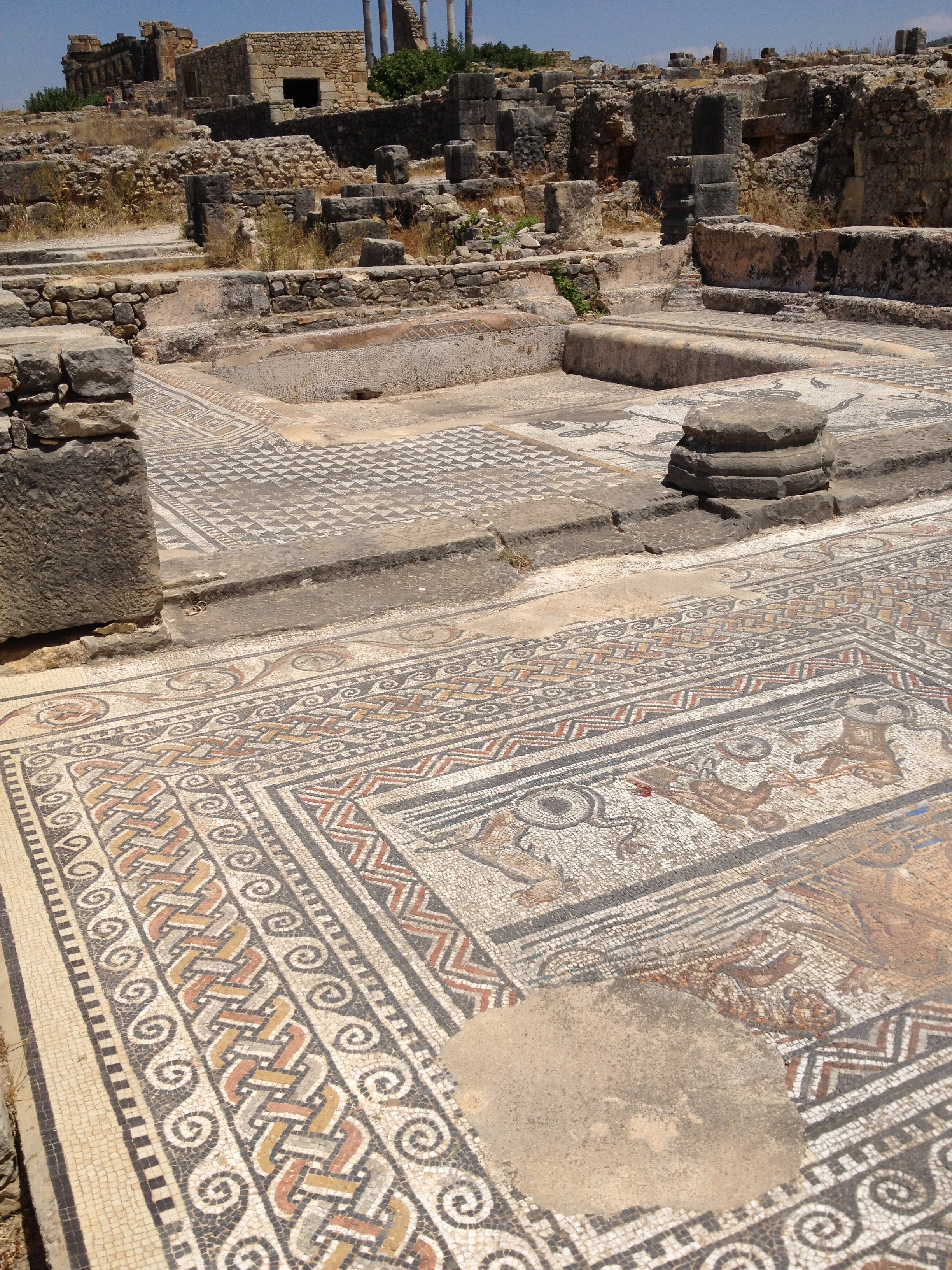
It amazed me that it has not been placed under cover, or restored more fully, as this is a great site.

This is an original ladies toilet area. Here he explains how you would rest your back against the trough and sit and talk. To the opposite side was the vomitorium. Hmm – quite comfortable!
I am so impressed by the detail of the mosaics and you can get really close to them too.
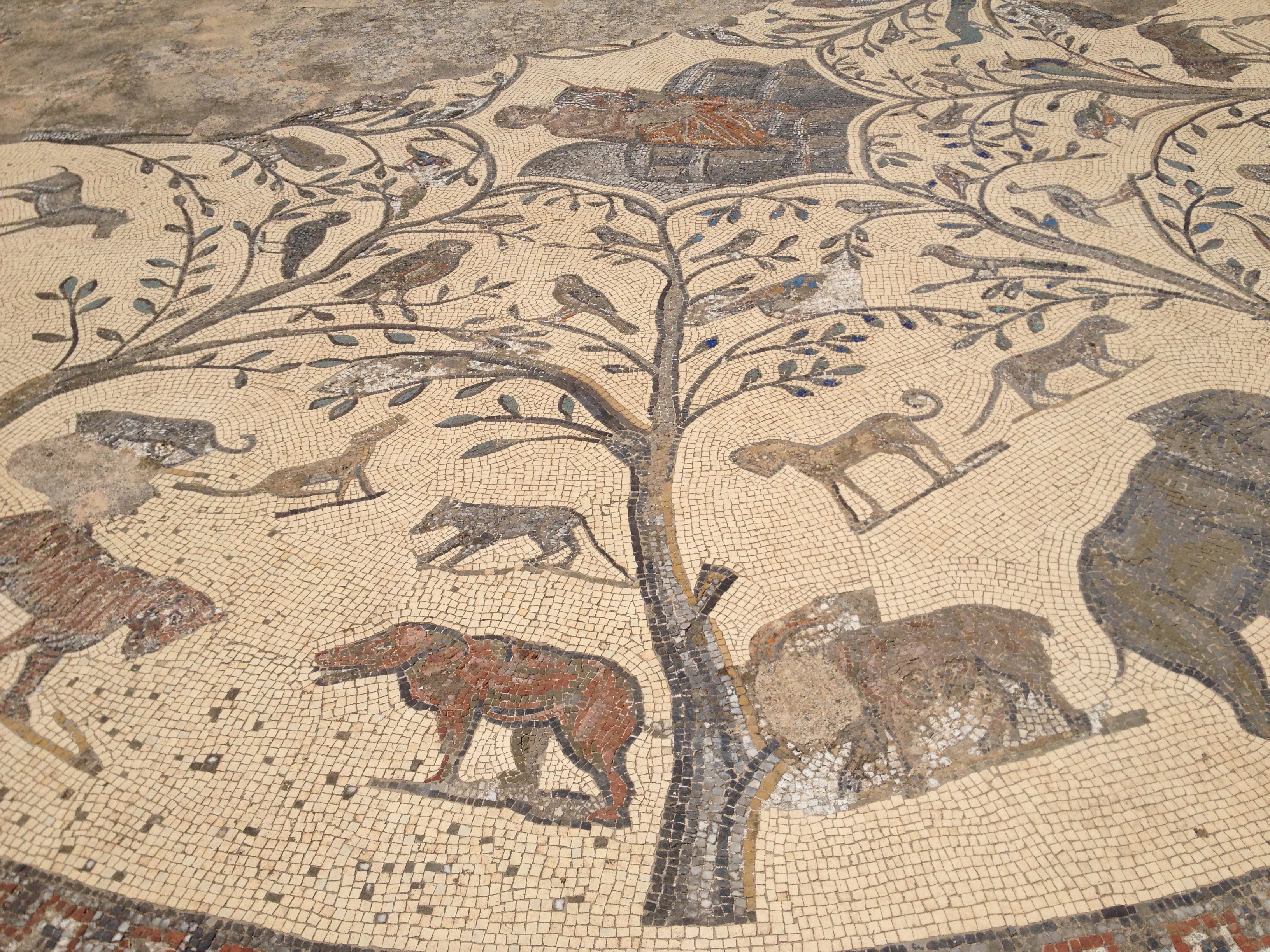
This is a solarium area he tells us, where men rested and talked in the sun.
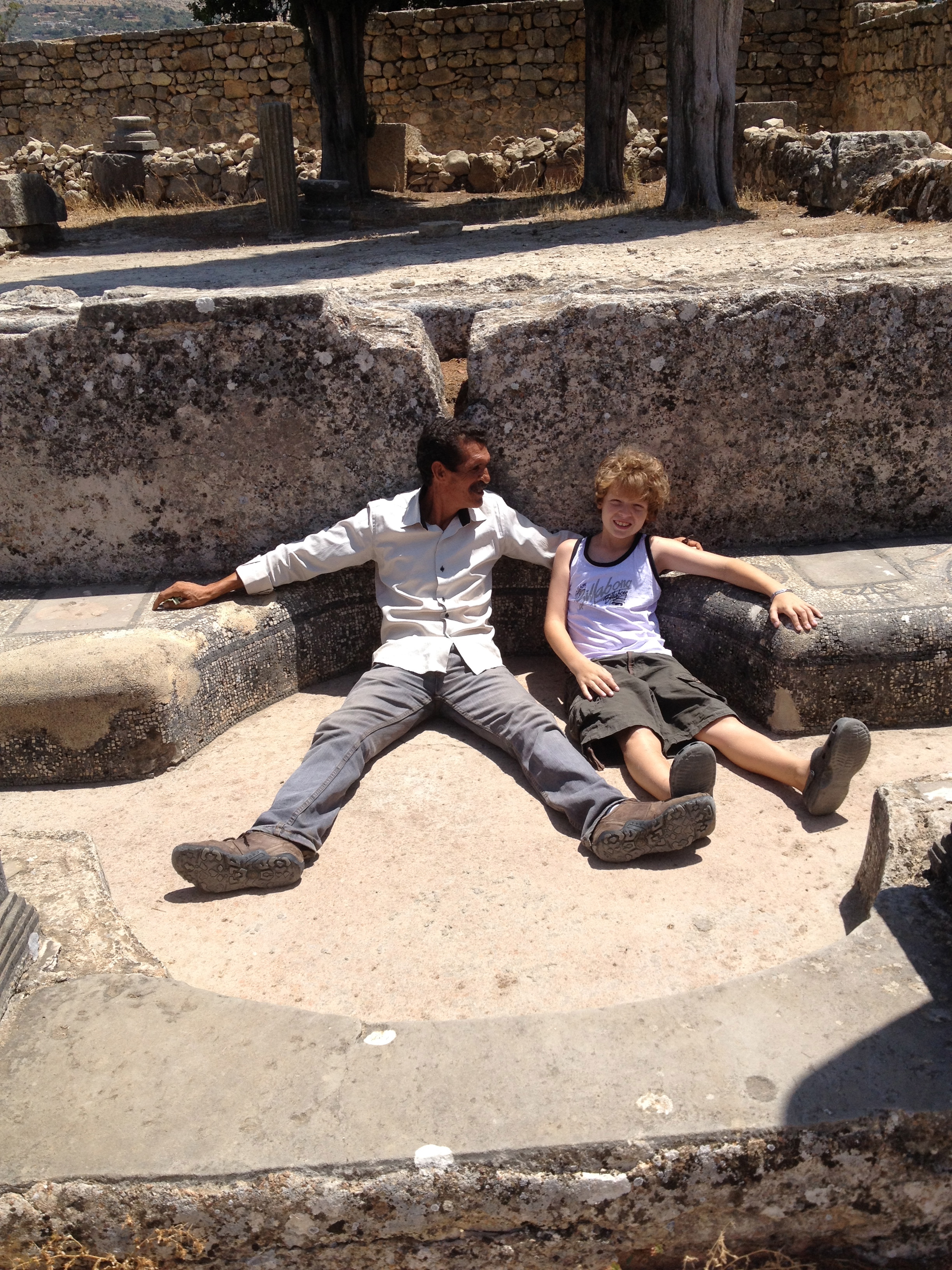
This is a grinding room. Many grindstones are found throughout the city.
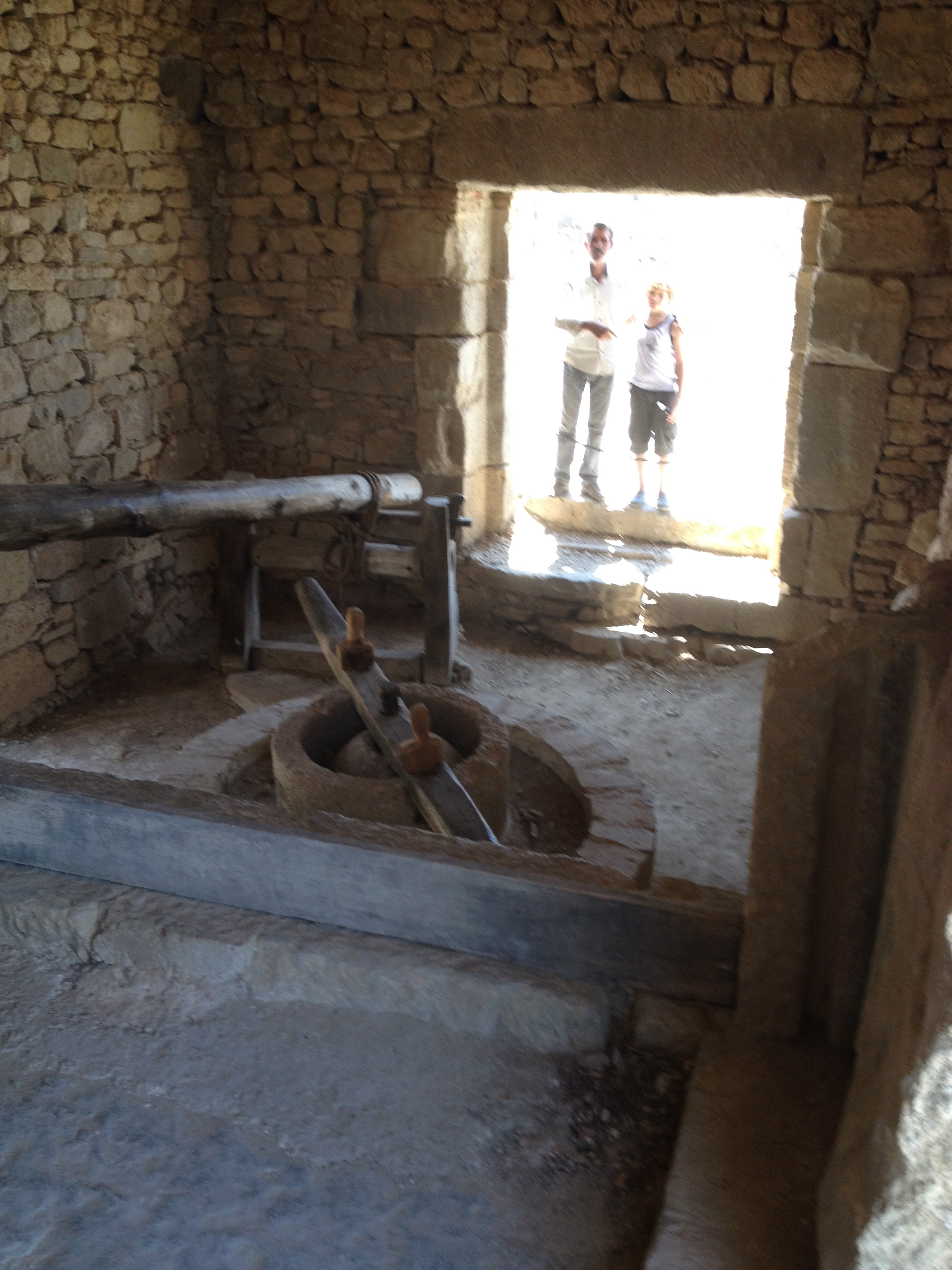
They press the oil from the olives too.

At the top of the hill seems to be a more central arch area and would have been the main street.
He explains to Explorason that this was the area for men to be with women.
I think my 9-year-old is getting more of an education than I bargained for, but then the Romans have always been known as lovers, so 2000 years ago it was the same.

There was even a stone where you rested your male anatomy on a small trough and it was washed.
The city gained a number of major public buildings in the 2nd century AD, including a basilica, temple and triumphal arch as you can see here.

Its prosperity was well known and the Romans really did make an influence in Morocco.

You can see the fine detail here of some of the work which would have been ornately displayed.
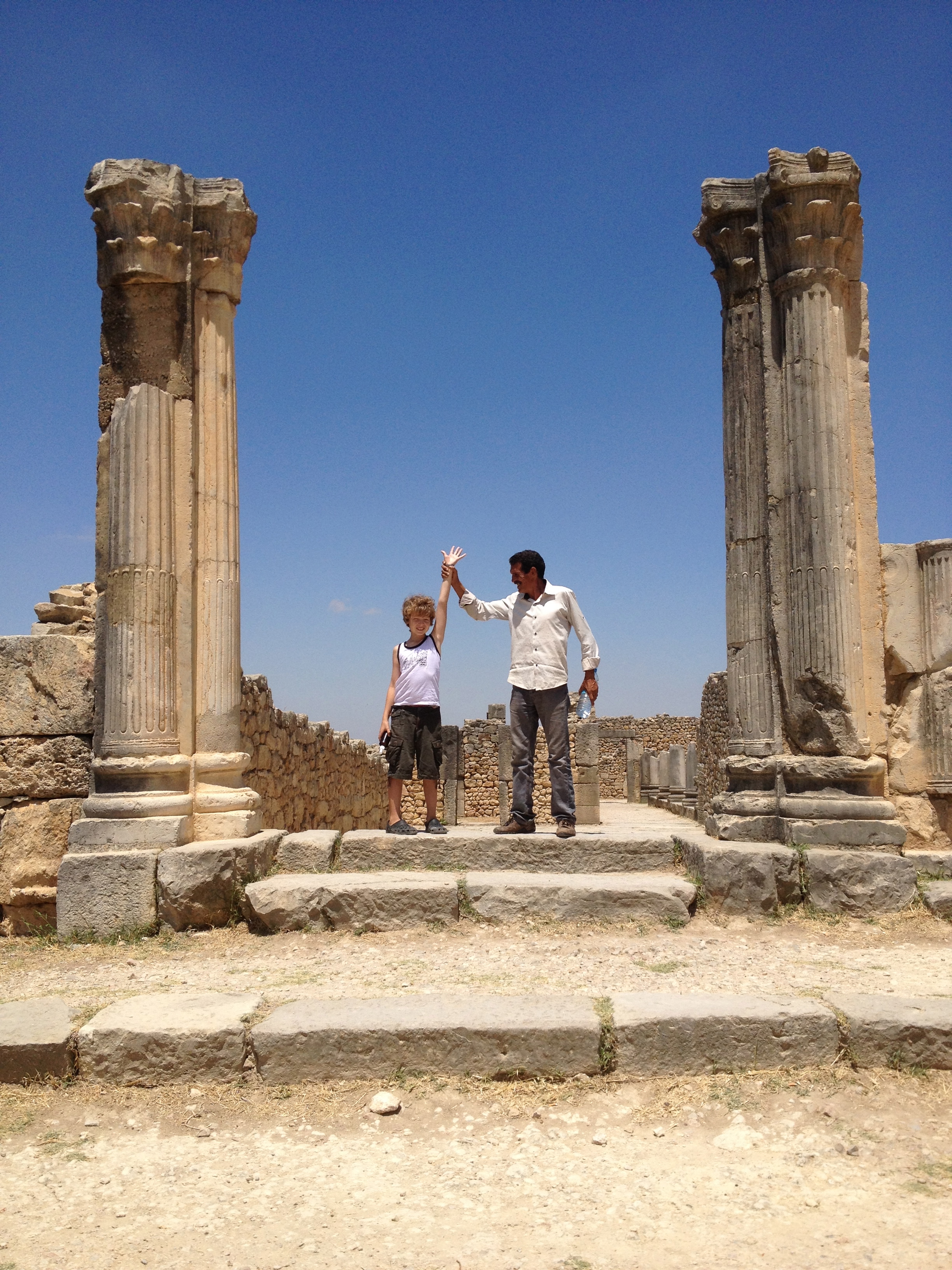
The wealth was mainly made from olive growing, and as the rich increased in wealth, so did the construction of many fine houses with large mosaic floors.
The town fell to local indigenous tribes around 285 AD.
It was never retaken by Rome because of its remoteness and indefensibility on the south-western border of the Roman Empire.
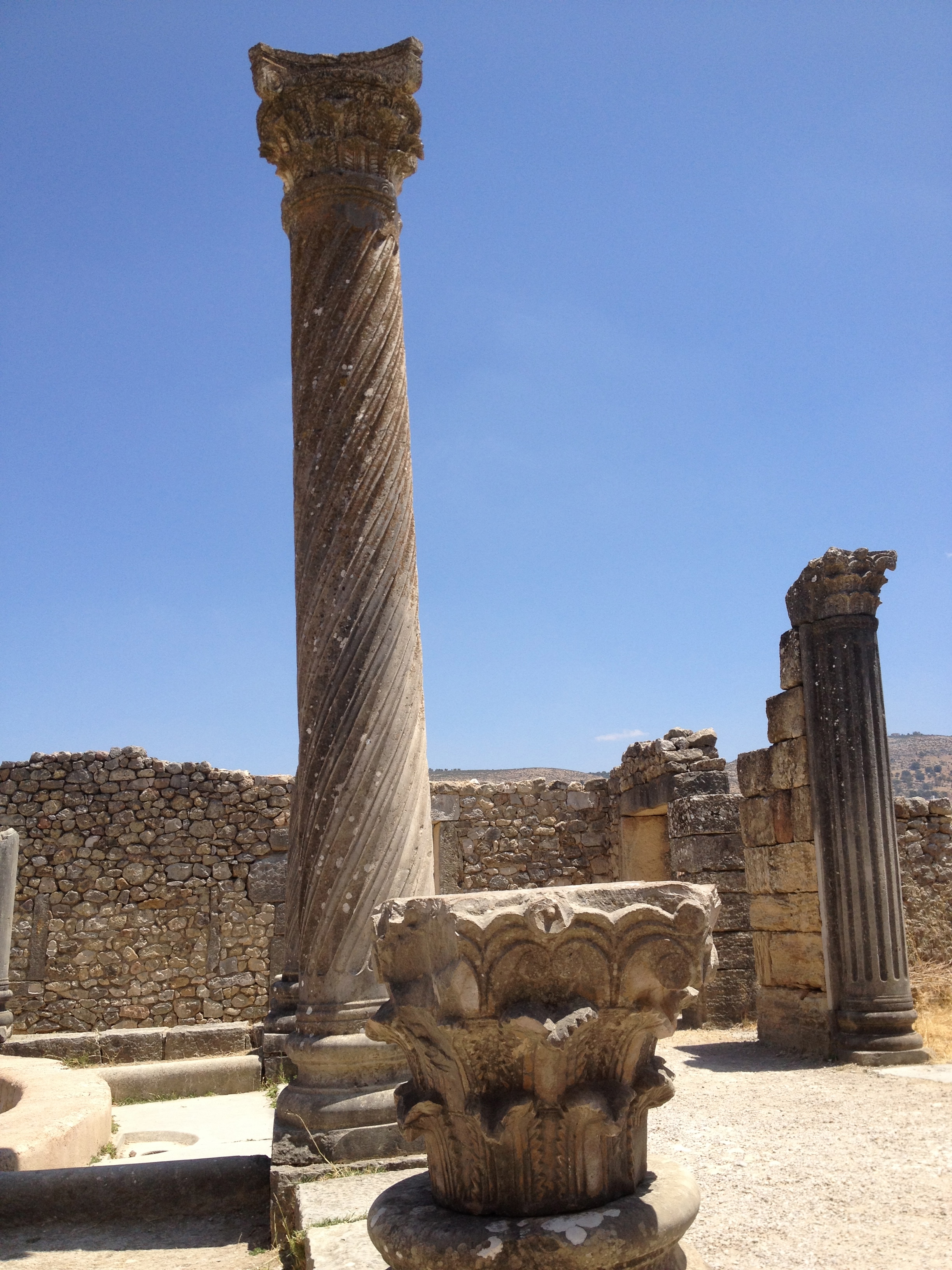
It continued to be inhabited for at least another 700 years, first as a Latinised Christian community, then as an early Islamic settlement.
In the late 8th century AD it became the seat of ‘Idris ibn Abdallah’, the founder of the Idrisid dynasty and the state of Morocco. It would have been majestic prior to this time. There were stores and you can see where the vendors even locked their shops.

We learn more about the mosaics and who is represented in mythical legends.

Our guide allows us to walk on the mosaic, and as we have a spray bottle of water, he takes it and wets the mosaic and the colors come to life.
It is fabulous!
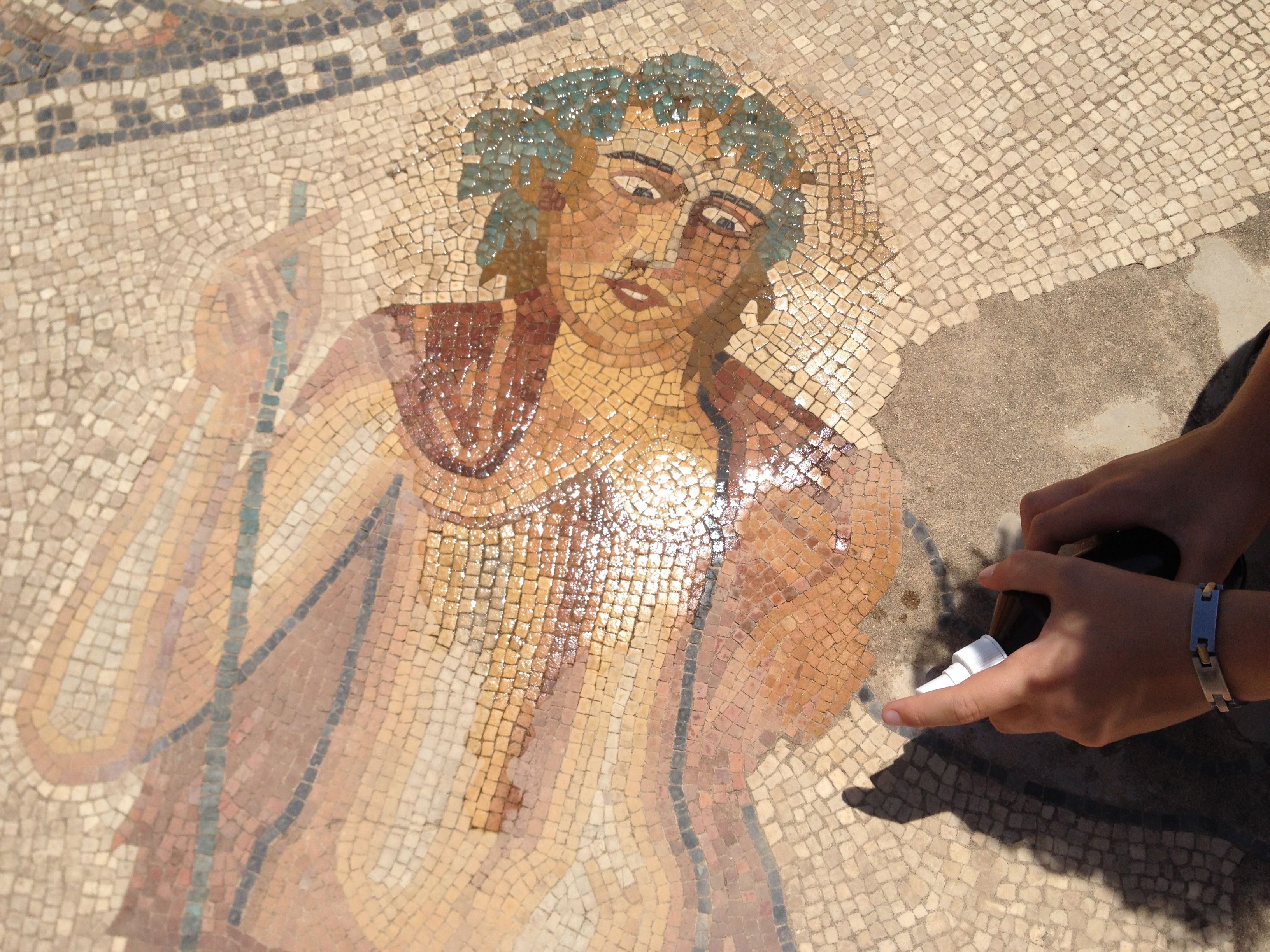
I am really impressed the although there is a language barrier, we are learning so much.
This guide really is making Explorason enjoy history.
People often ask how we educate, but you can learn more in an hour at a place like this, than 1 week with your nose in a book.
World education is really amazing.
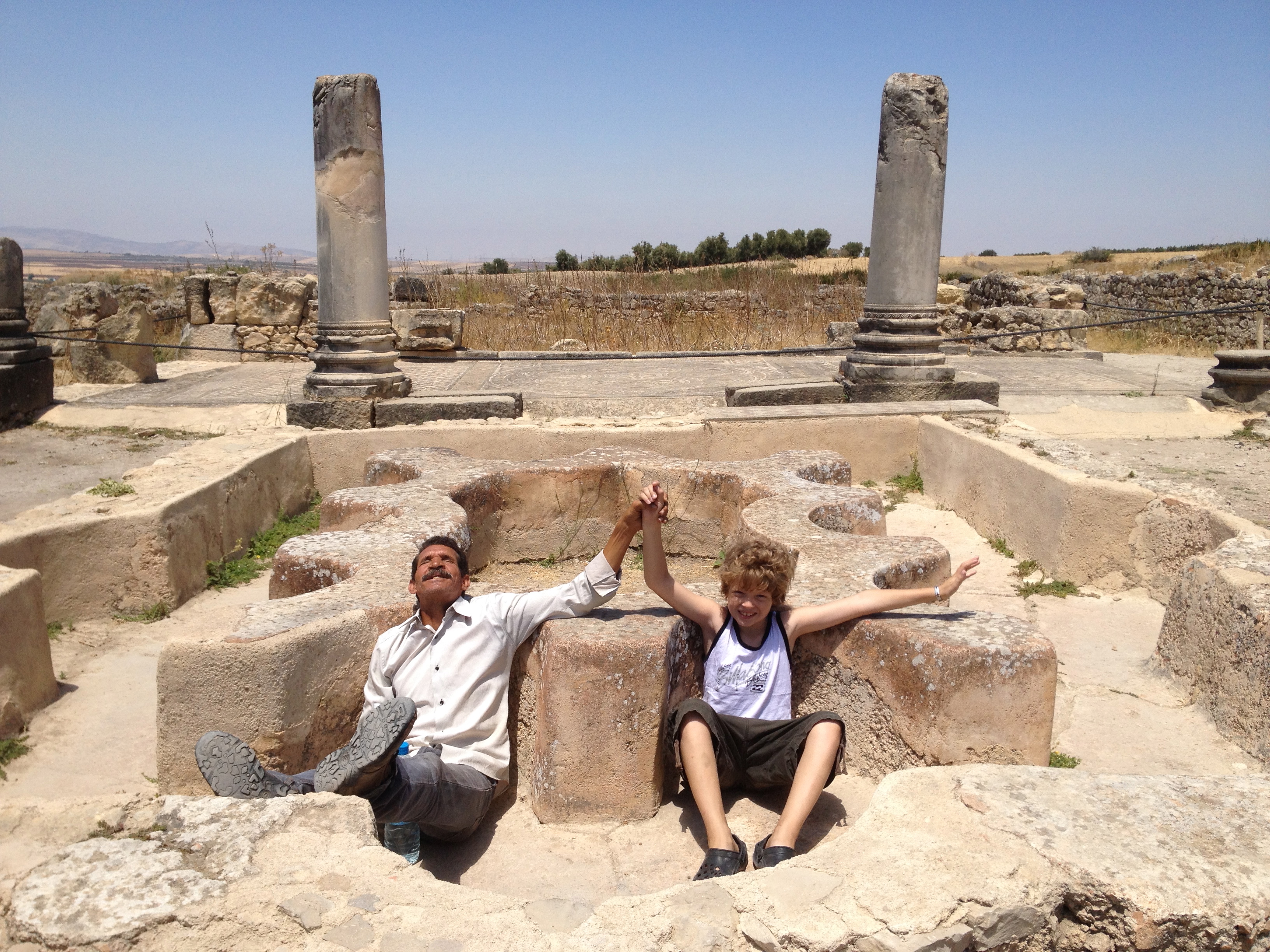
The detail and mosaics seem endless here and show daily life.
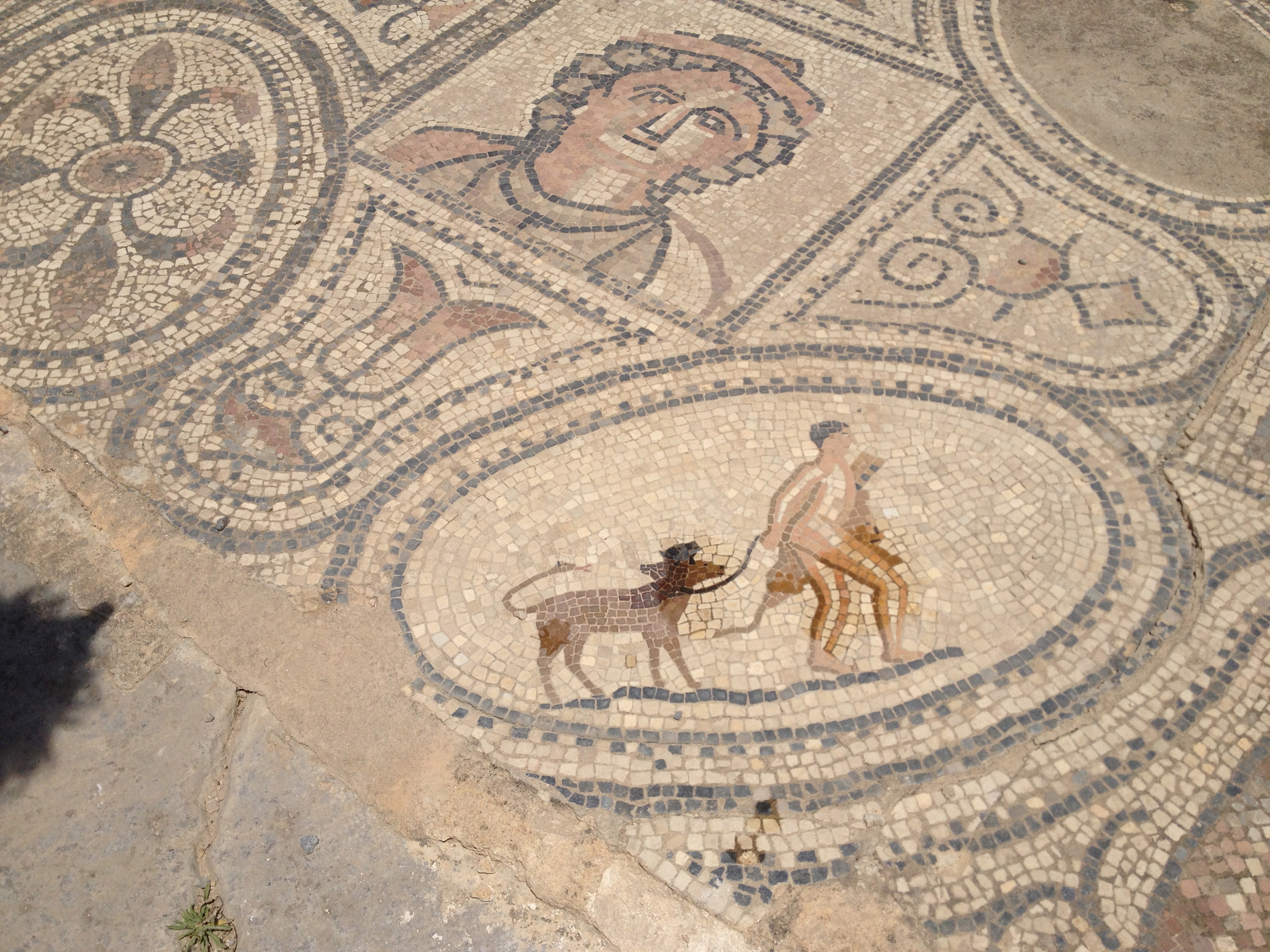
We wonder if men wandered around completely unclothed as it suggests here.
It also shows animals and hunting and taming.
This is Medusa. If you look into her eyes, you are supposed to have turned into a statue.

See the snakes coming from her hair.

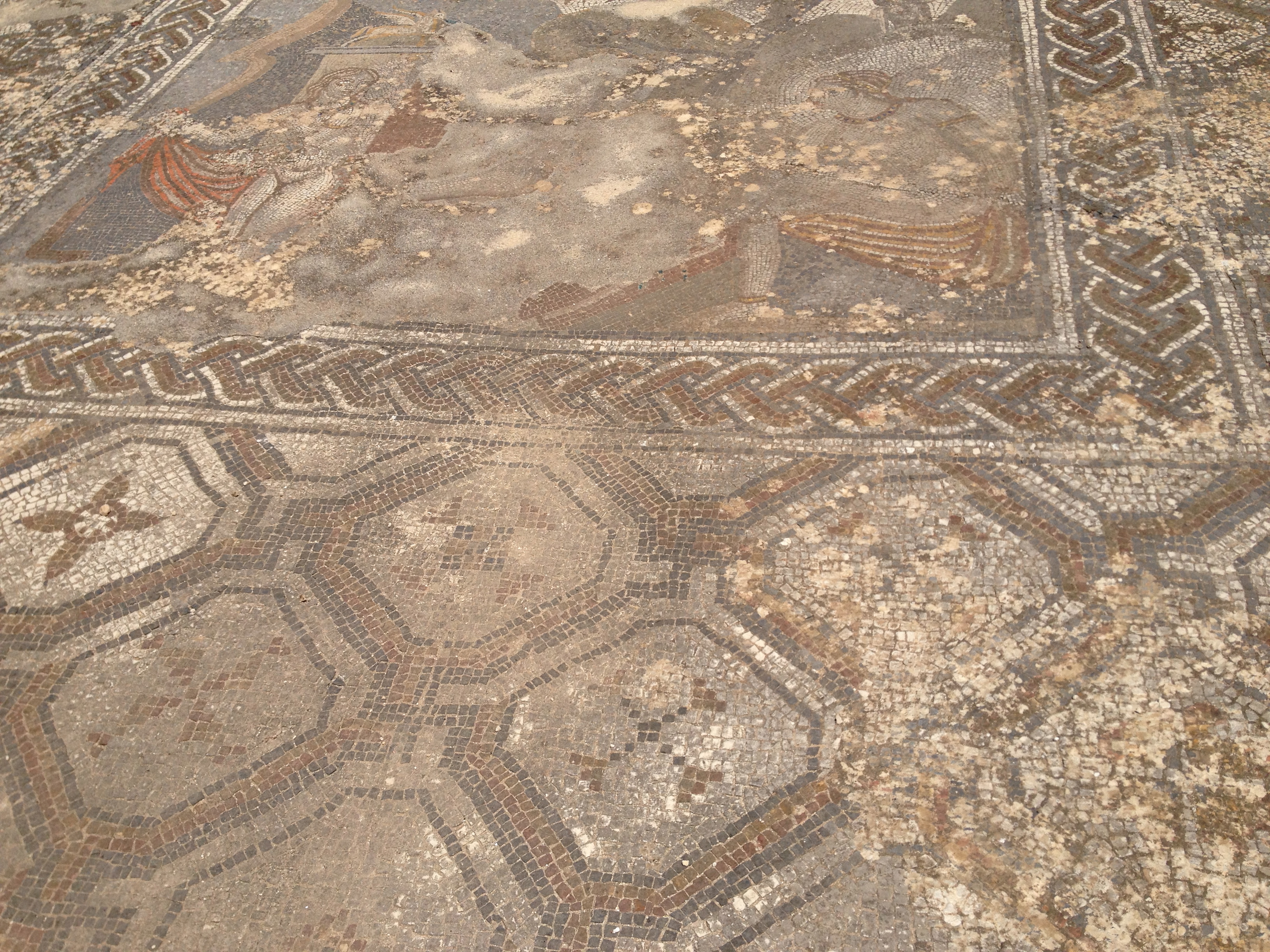
Now one thing I forgot to mention. I left the battery for my camera still charging. I have my cell mobile phone but it was on 20% so my photos are not only poorer quality, but I am having to be careful as to how many I take too.
By the 11th century, Volubilis had been abandoned by civilization after the seat of power was relocated to Fes. Much of the local population was transferred to the new town of Moulay Idriss Zerhoun, about 5 km (3.1 mi) from Volubilis and where we will visit after this.
The main street starts at the top of the hill and also has a drain system.

The ruins remained substantially intact until they were devastated by an earthquake in the mid-18th century and subsequently looted by Moroccan rulers seeking stone for building Meknes. What a crying shame!

It was not until near the end of the 19th century that the site was definitively identified as that of the ancient city of Volubilis. The view over the valley shows the area where the crops were grown.
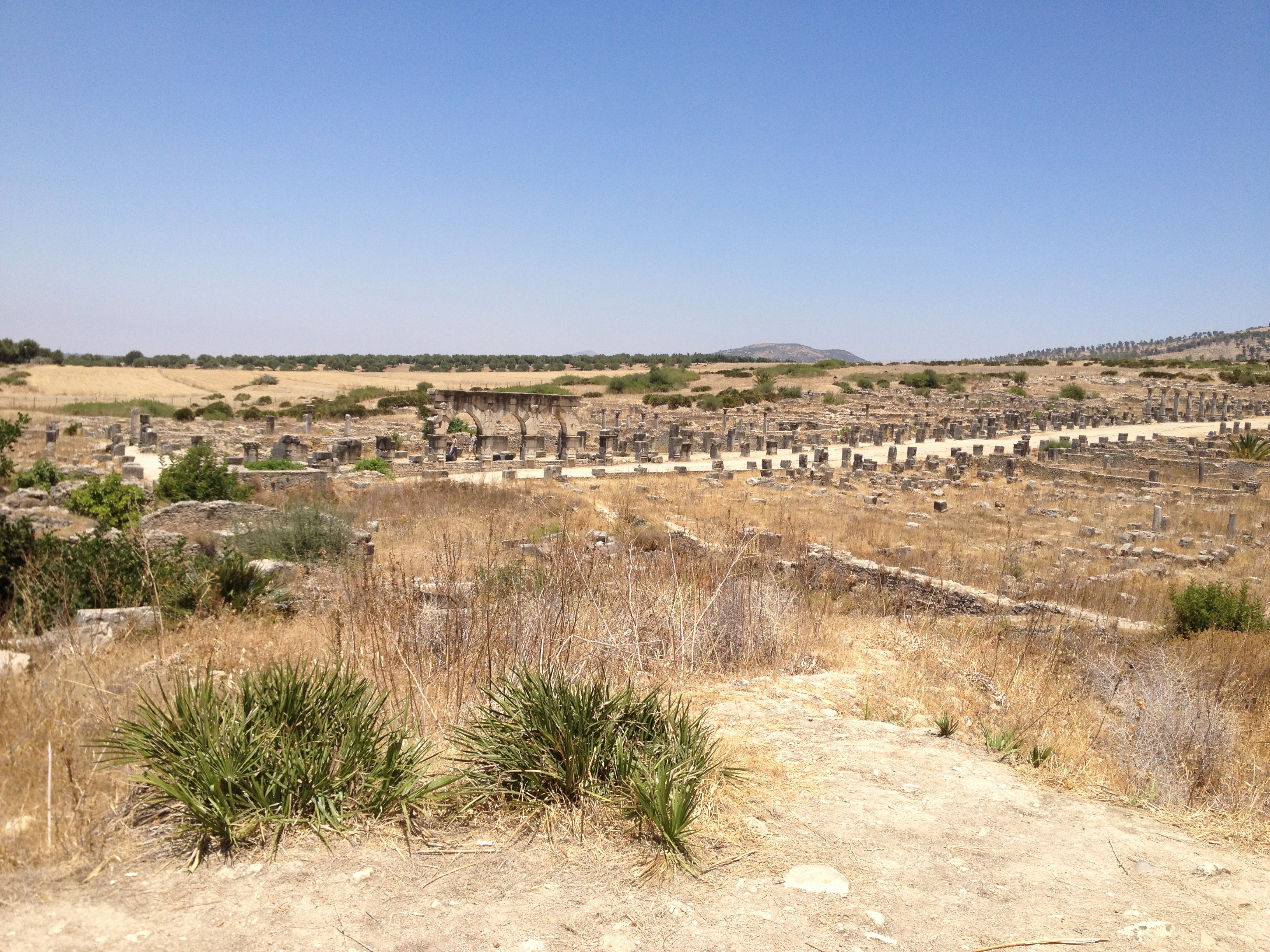
Behind are the fertile fields and olive groves.
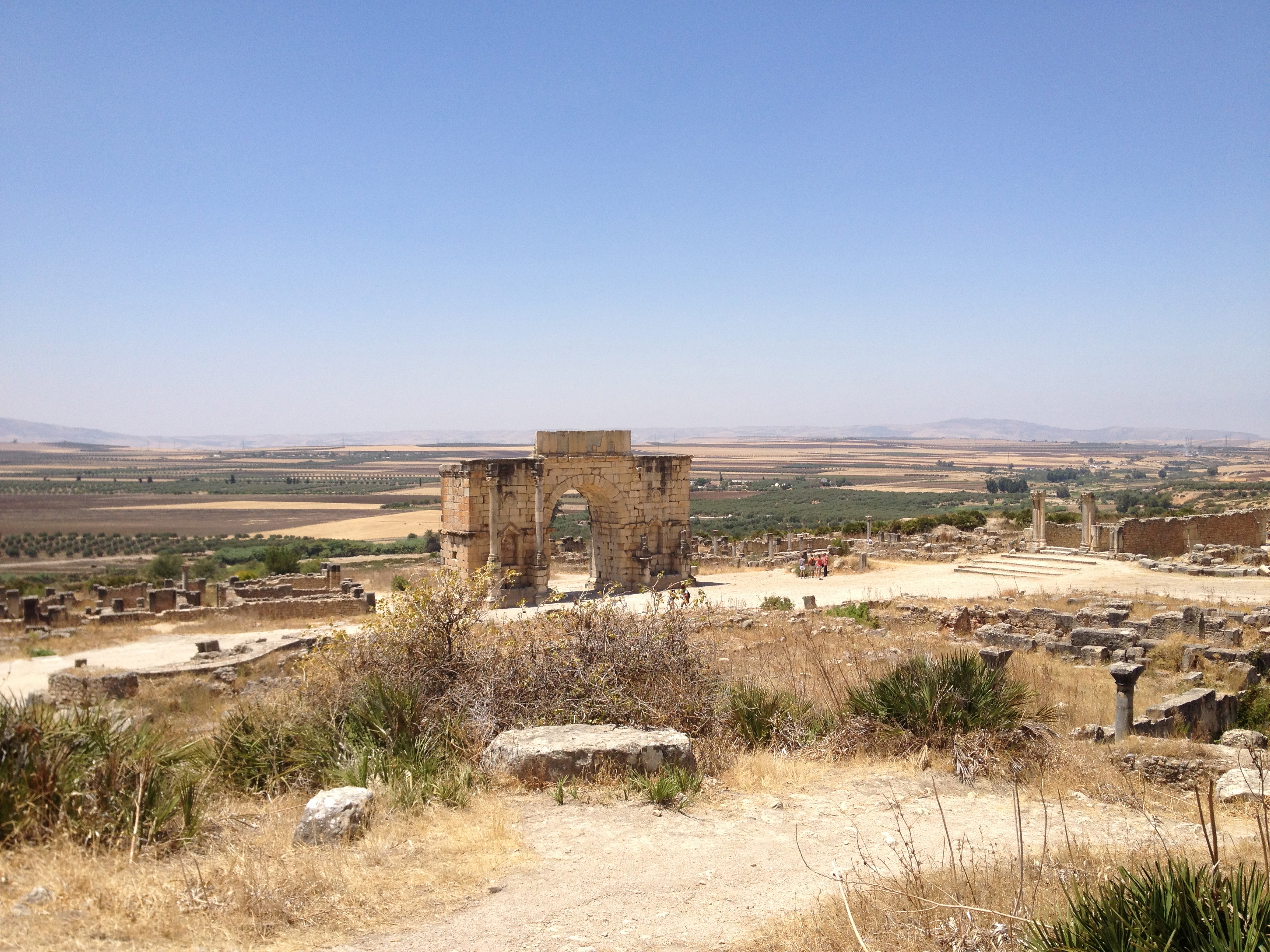
During and after the period of French rule over Morocco in more recent years, about half of the site was excavated, revealing many beautiful and intact fine mosaics, and some of the more prominent public buildings and high-status houses were restored or reconstructed.
We left our guide – we paid him 50DH – he wanted 150 at the end but I think we paid about the right amount, and then went on with our taxi to Moulay Idriss.
He drops us at the marketplace, and we walk up. It is as though time has stood still with the donkeys and local life.
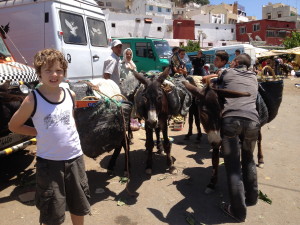
As we do we buy some fresh fruit and wash it and eat it.
There are fresh olives and bread – it is really great to see – and to smell the aroma.
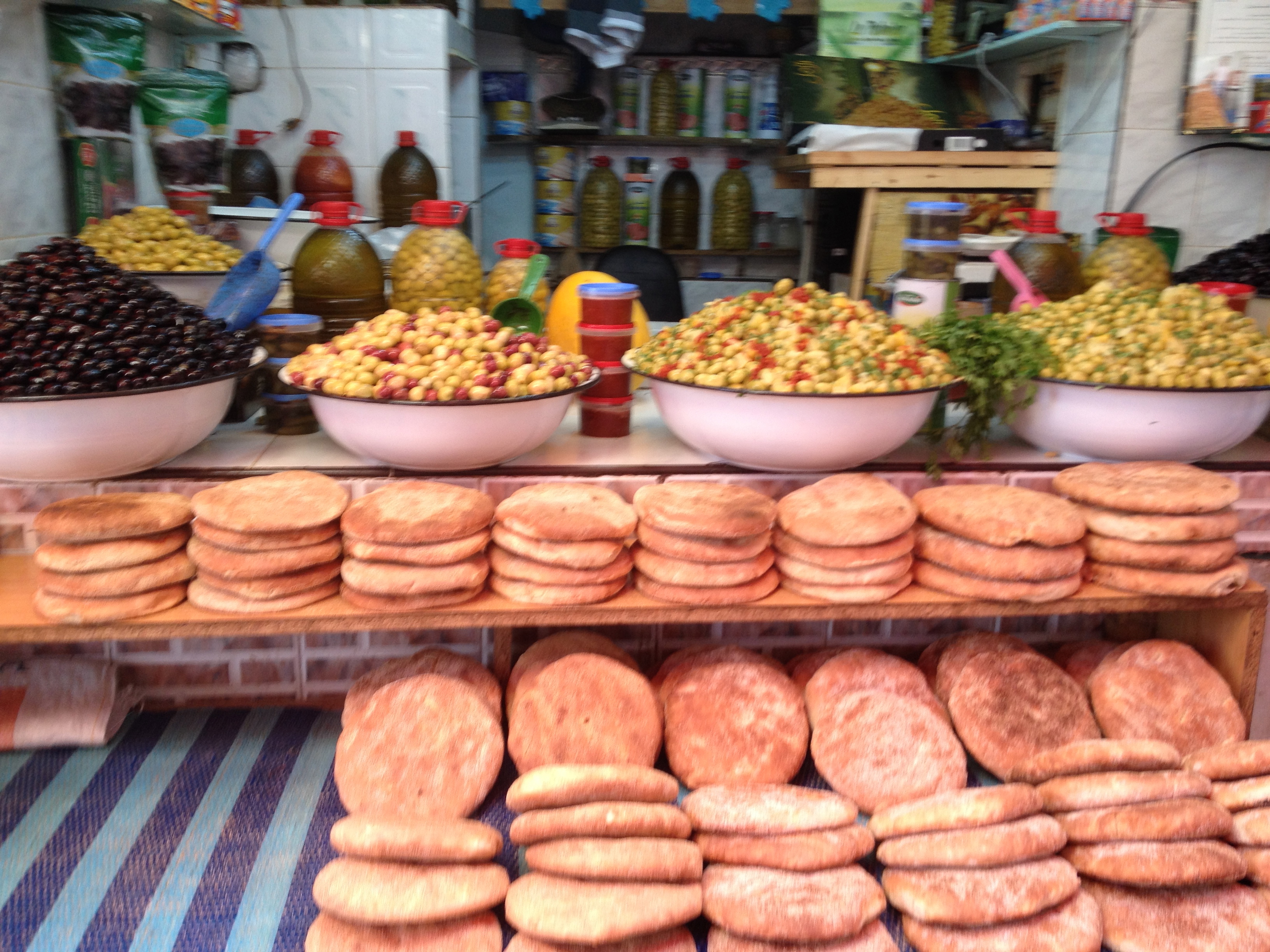
However, I don’t like the local butcher. No refrigeration.
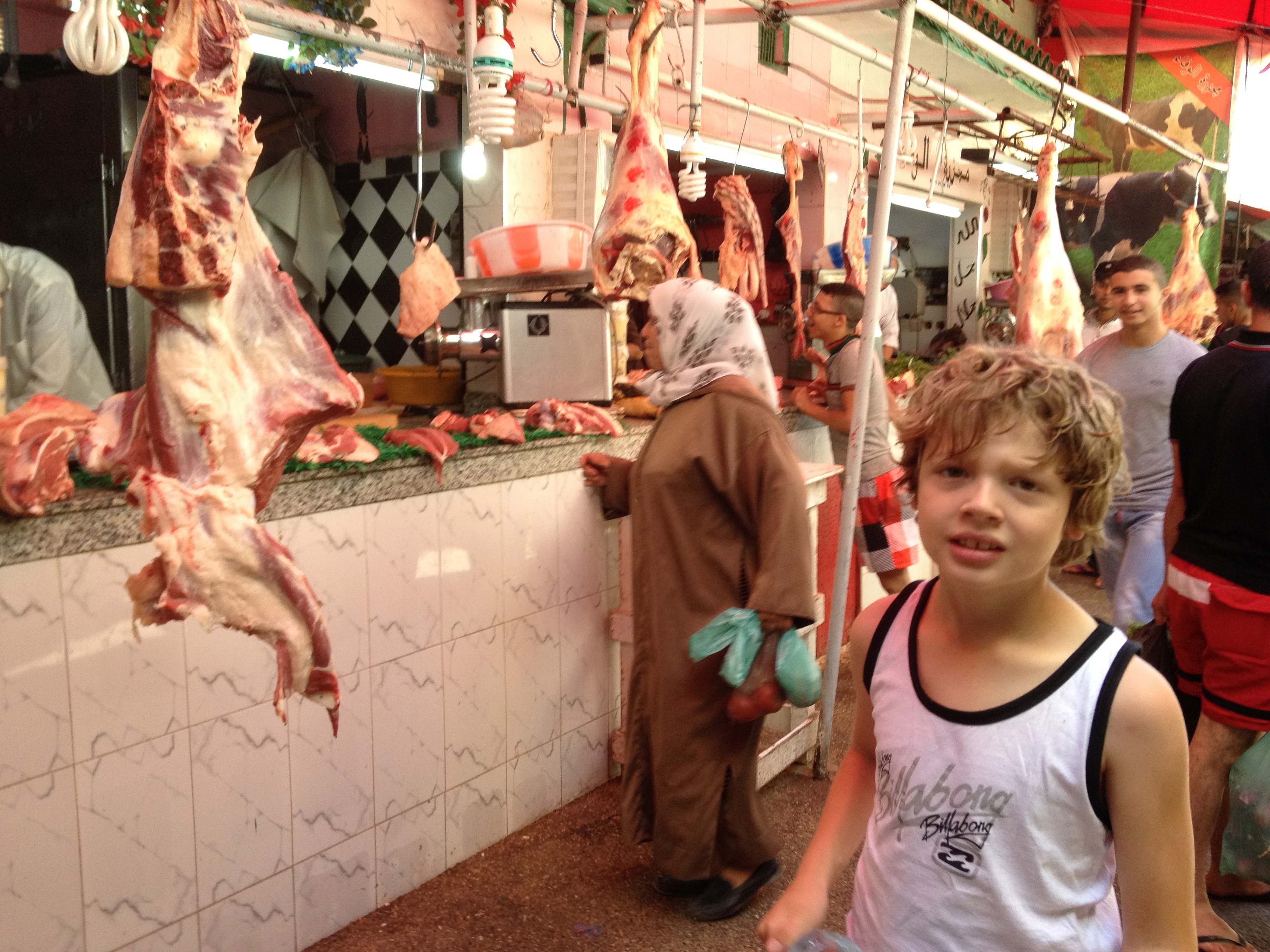
We walk up and all the men are in the mosque, as it is pos Ramadan and prayer time. So we wait and we have asked for a guide from the cafe owner.
We secure a great guide for 50 DH, and he takes us to try the local fudge. It is a bit like coconut ice, and there are fruit flavors. Also, some peanut tasting treats. I’m not a massive peanut fan, so we give it a miss, but it was kind of the owner to let us try.

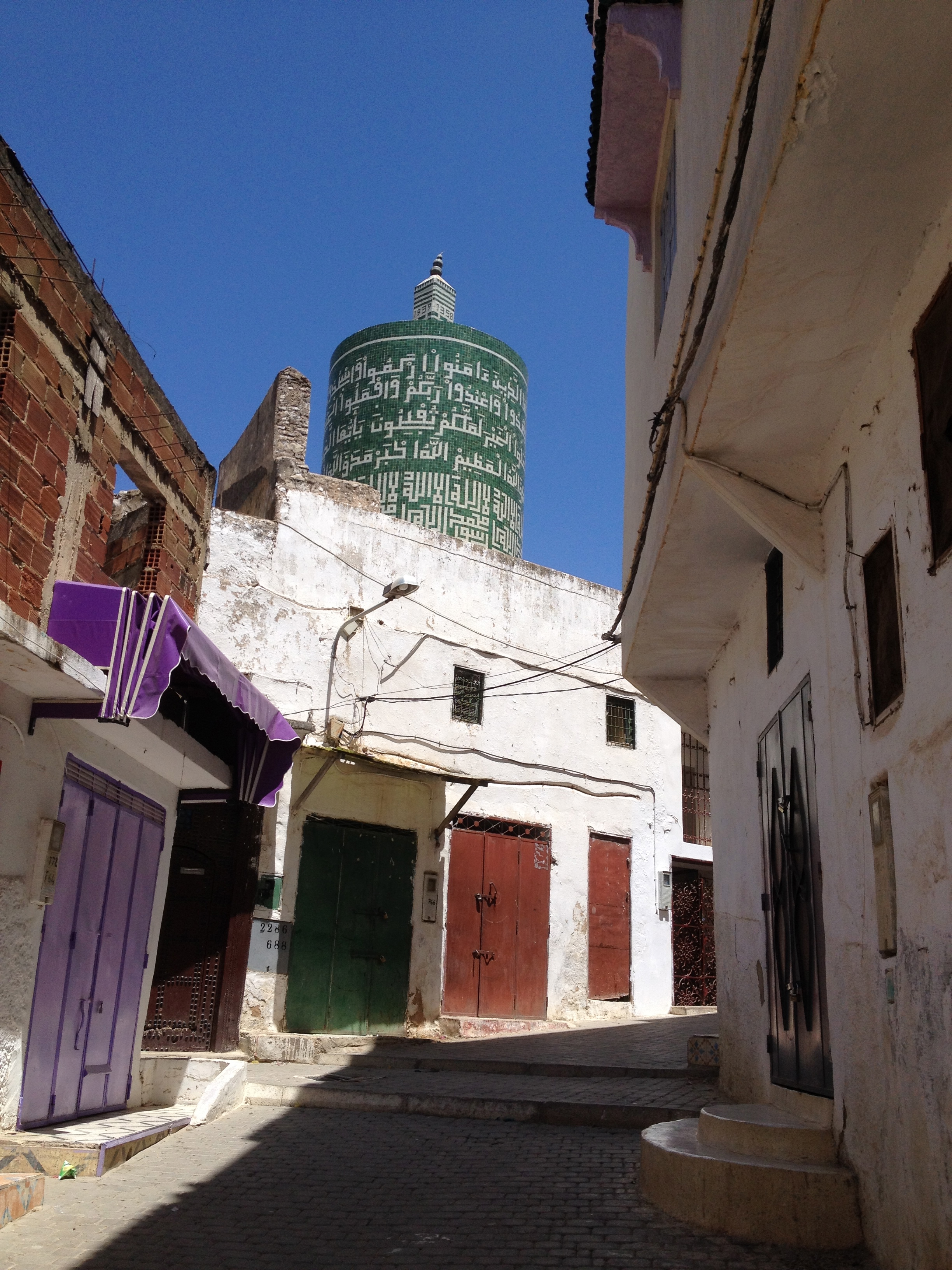

The sister continually hits the little boy. I wasn’t too impressed.
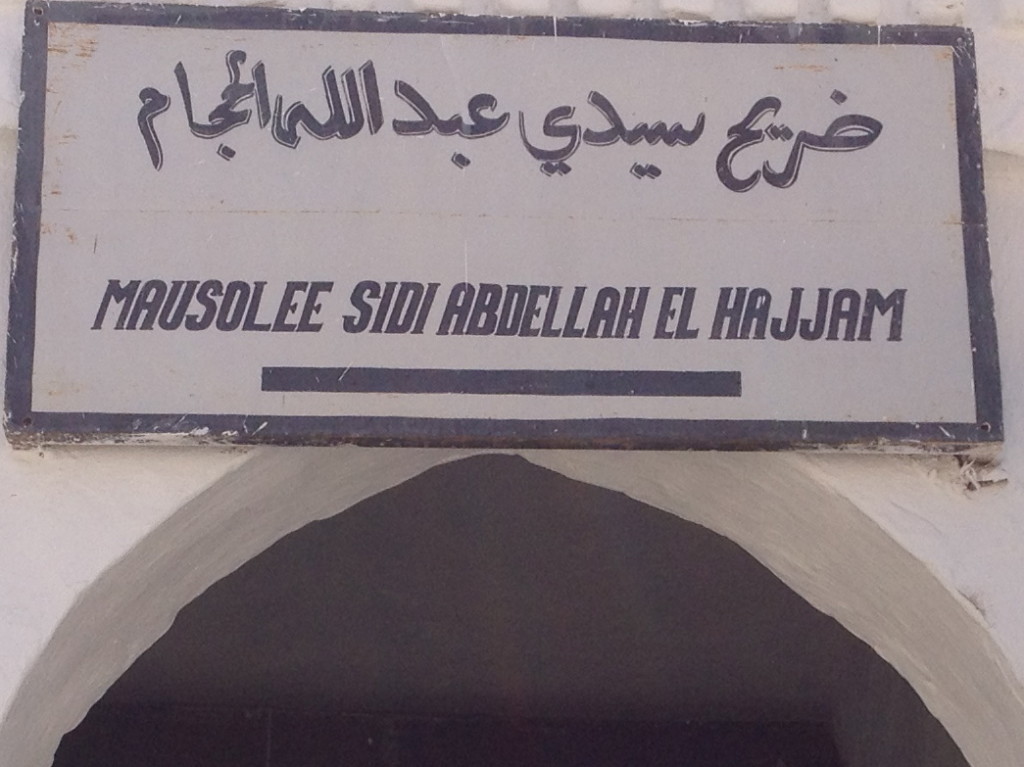
We pass yet another mosque. We are not allowed in – of course. The only mosque for tourists I believe is Casablanca.
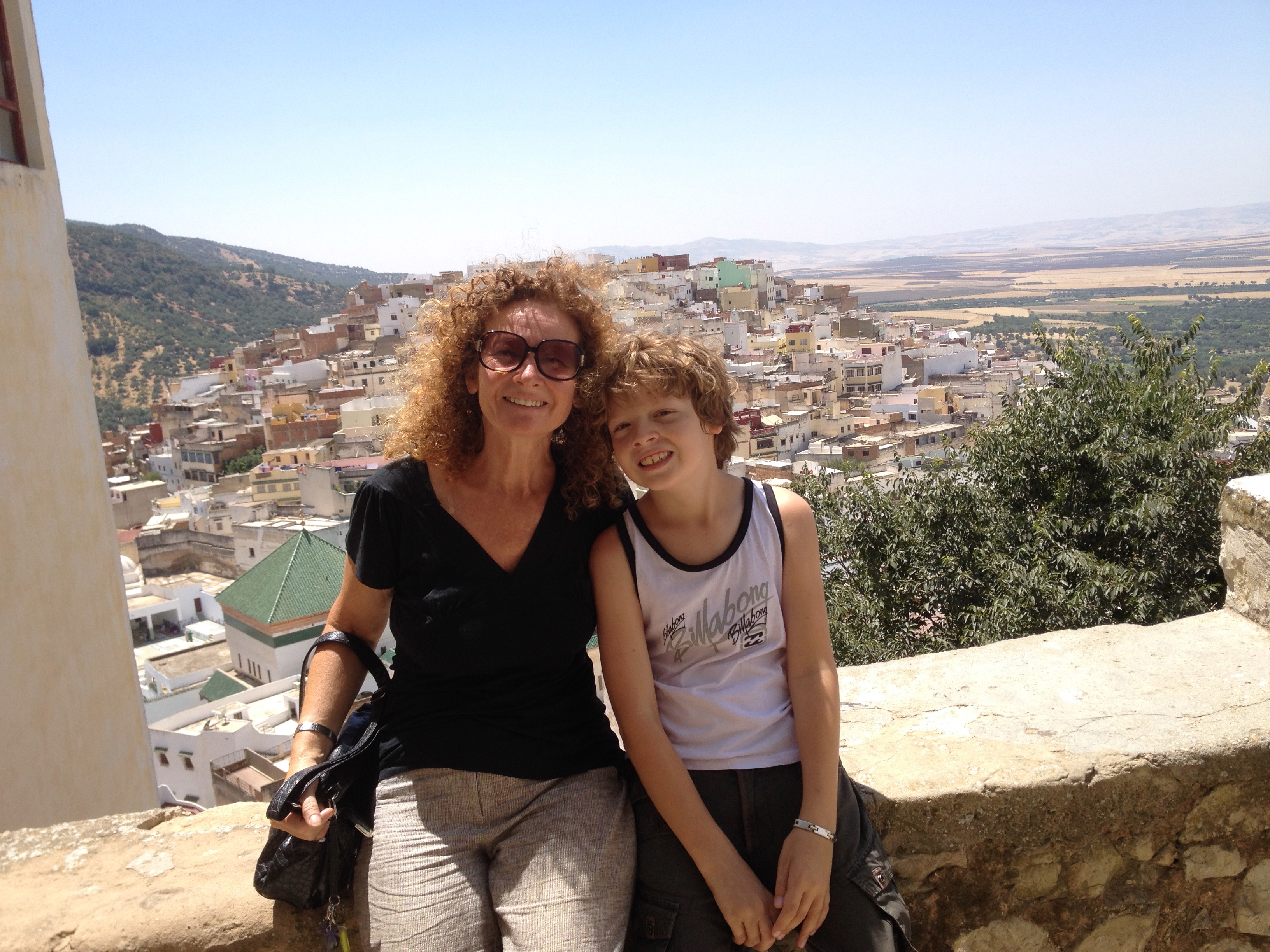
Just off the main square (the buildings with the green roof) is the Mausoleum of Idriss I, a sacred destination that is open only to Muslims.
It is said in Morocco that six pilgrimages to Moulay Idriss during the annual festival honoring the saint is equivalent to one Hajto Mecca for their faith. With Ramadan and prayer and fasting, Islam faith seems to be very sacrificial and they deny themselves. This is something Westerners don’t often do.
This is the oldest door in the city.

In the laneway the ‘taxi’ is the donkey. So you need to watch where you walk or soft missiles are found squishing in your shoes – yuk!
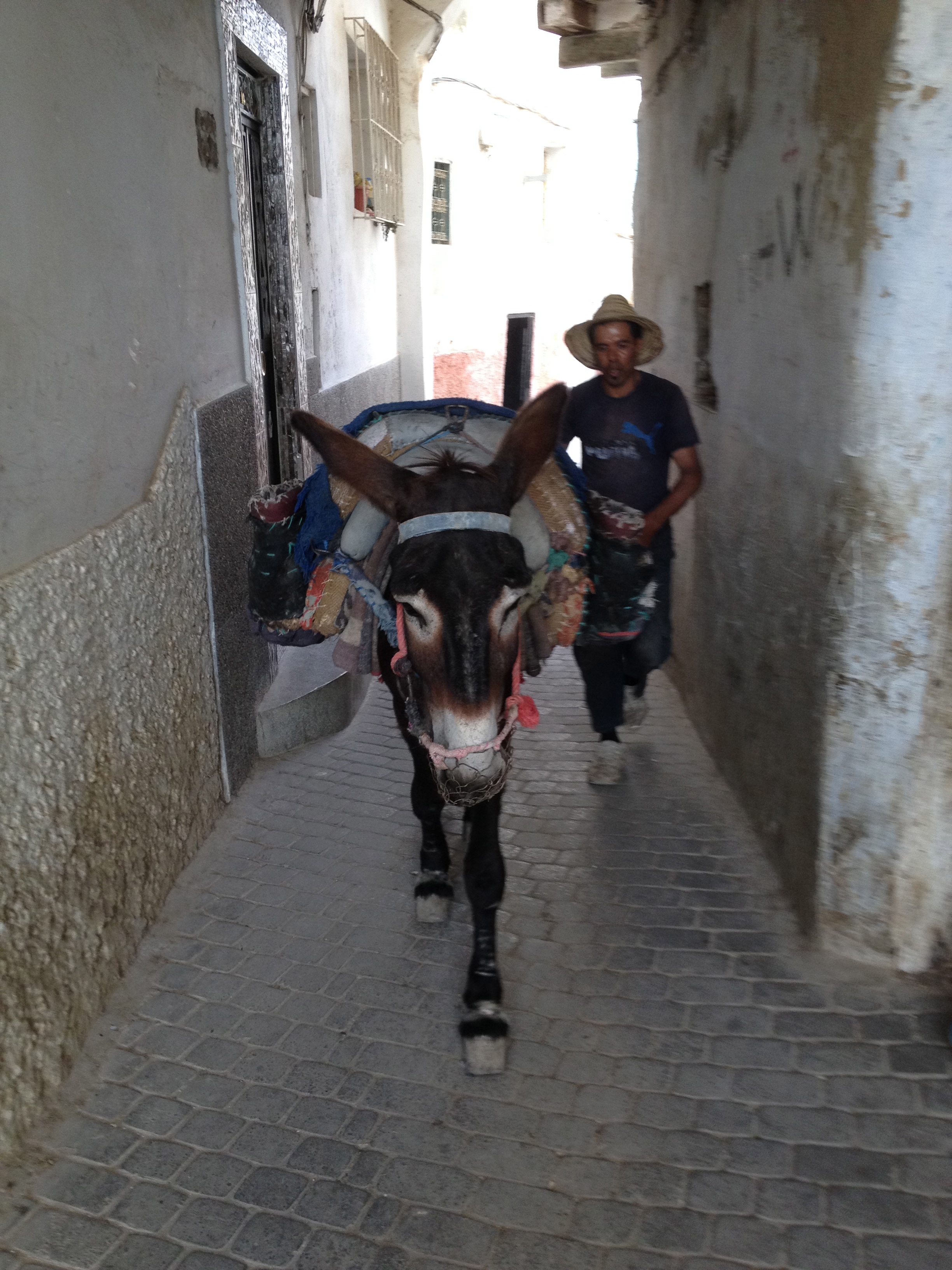
We are also taught about the tattooing of the women’s faces – at the center of the face – one tattoo between the brows running upward, and another down the center of the chin.
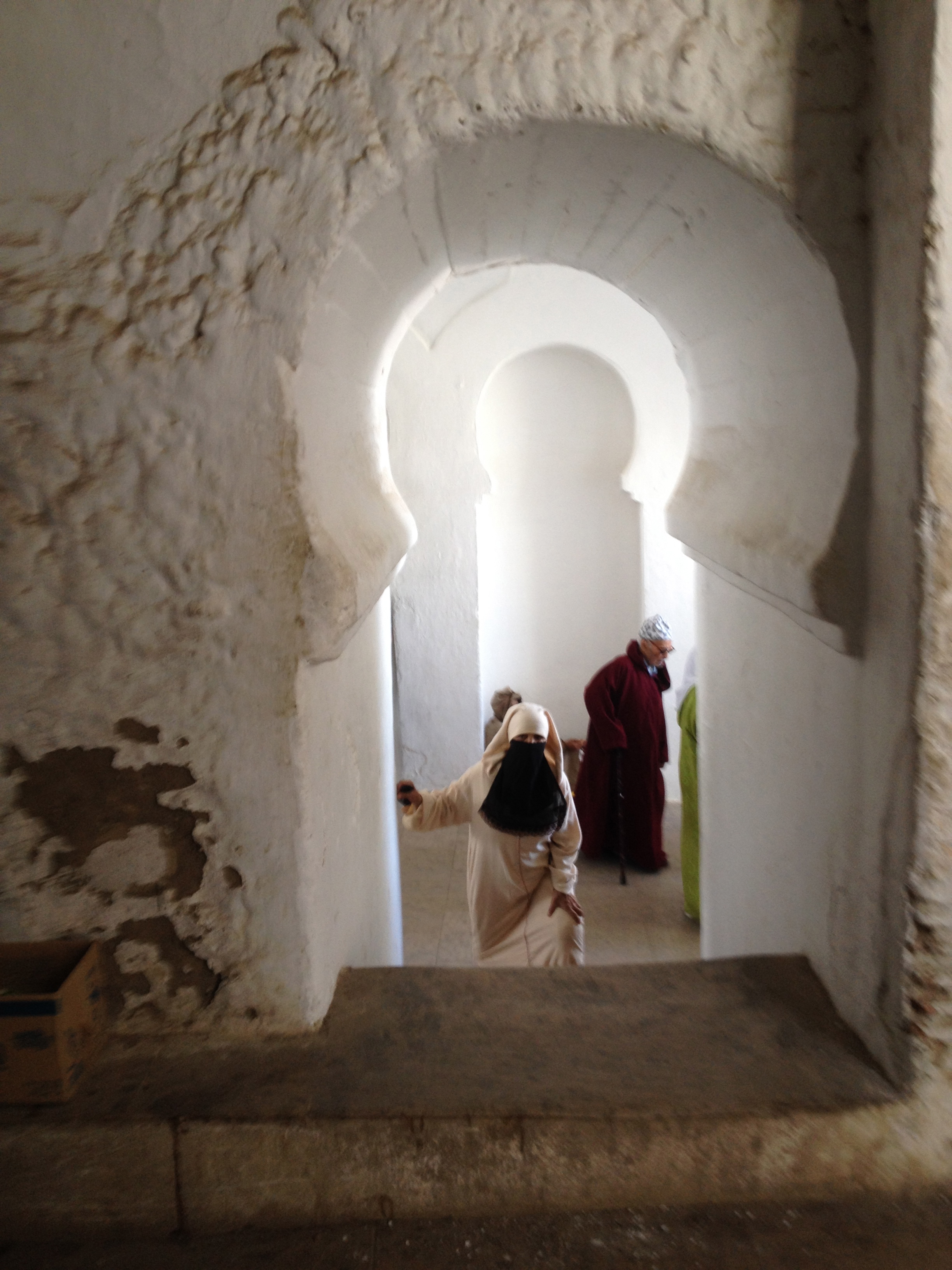
We are taught the difference between Nomads, Berbers, and Arabs.
This is the entrance to the mosque.
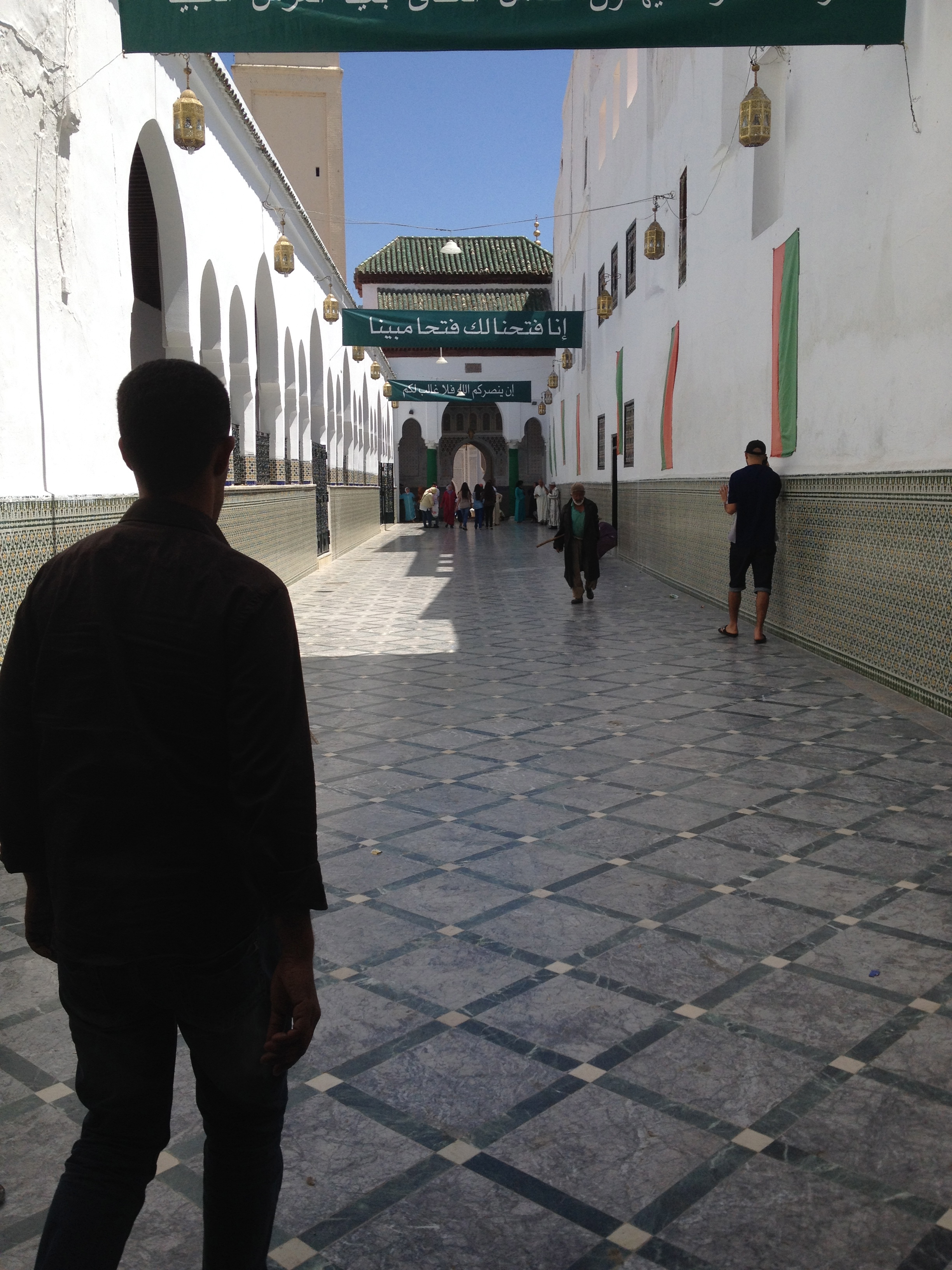
There is a beam and you must go under and this is the first bowing of submission we are taught.
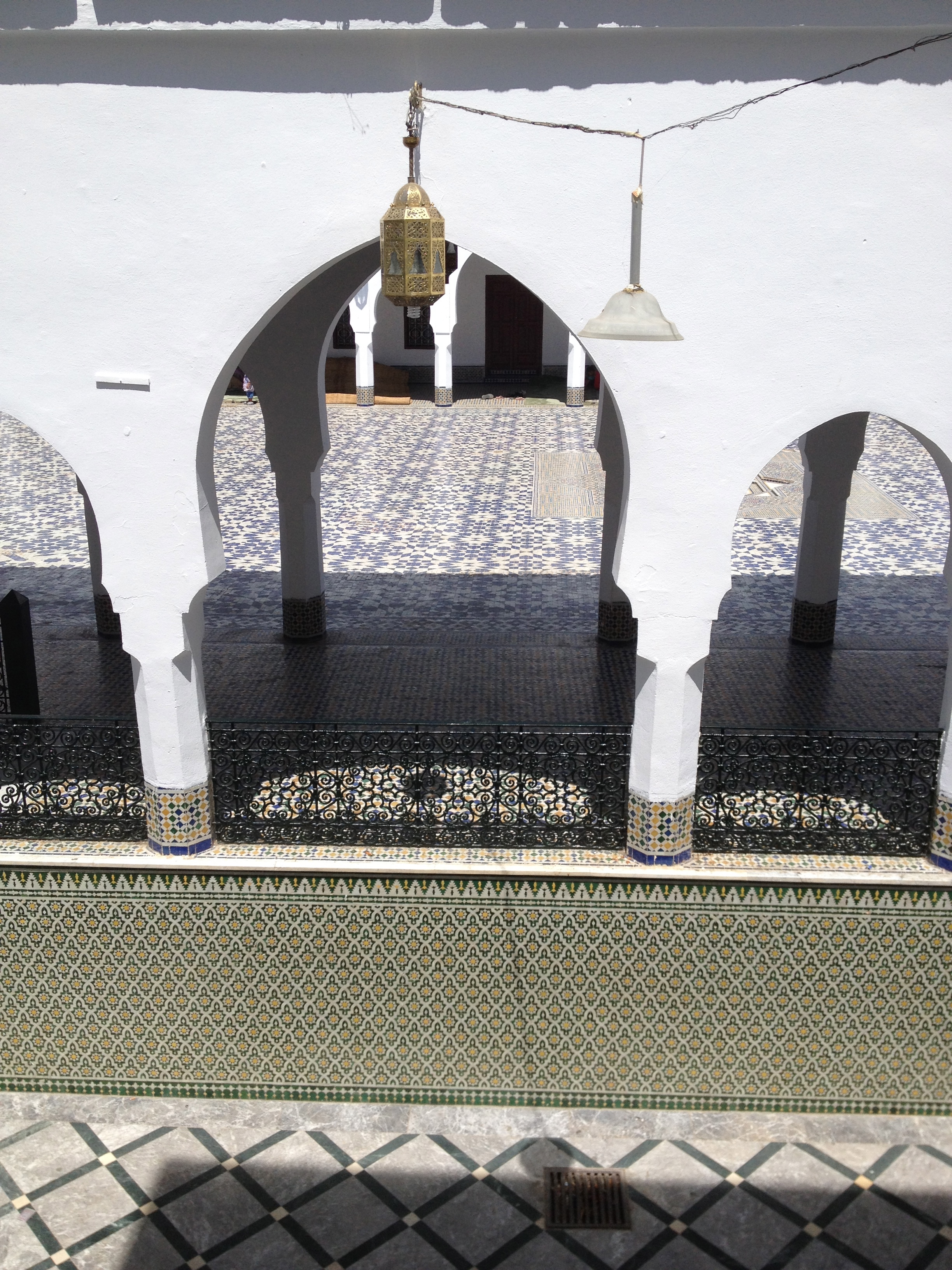
The arches have different shapes for Arabs and Berbers. There are large arches – 4 people can be under these and pray at one time, and the smaller arch is for a single person to pray under.

He takes us to a side arch and we are hidden but we can see people coming to the temple. He is a good guide as we get a feeling of the town and life there – another great education for Explorer son.
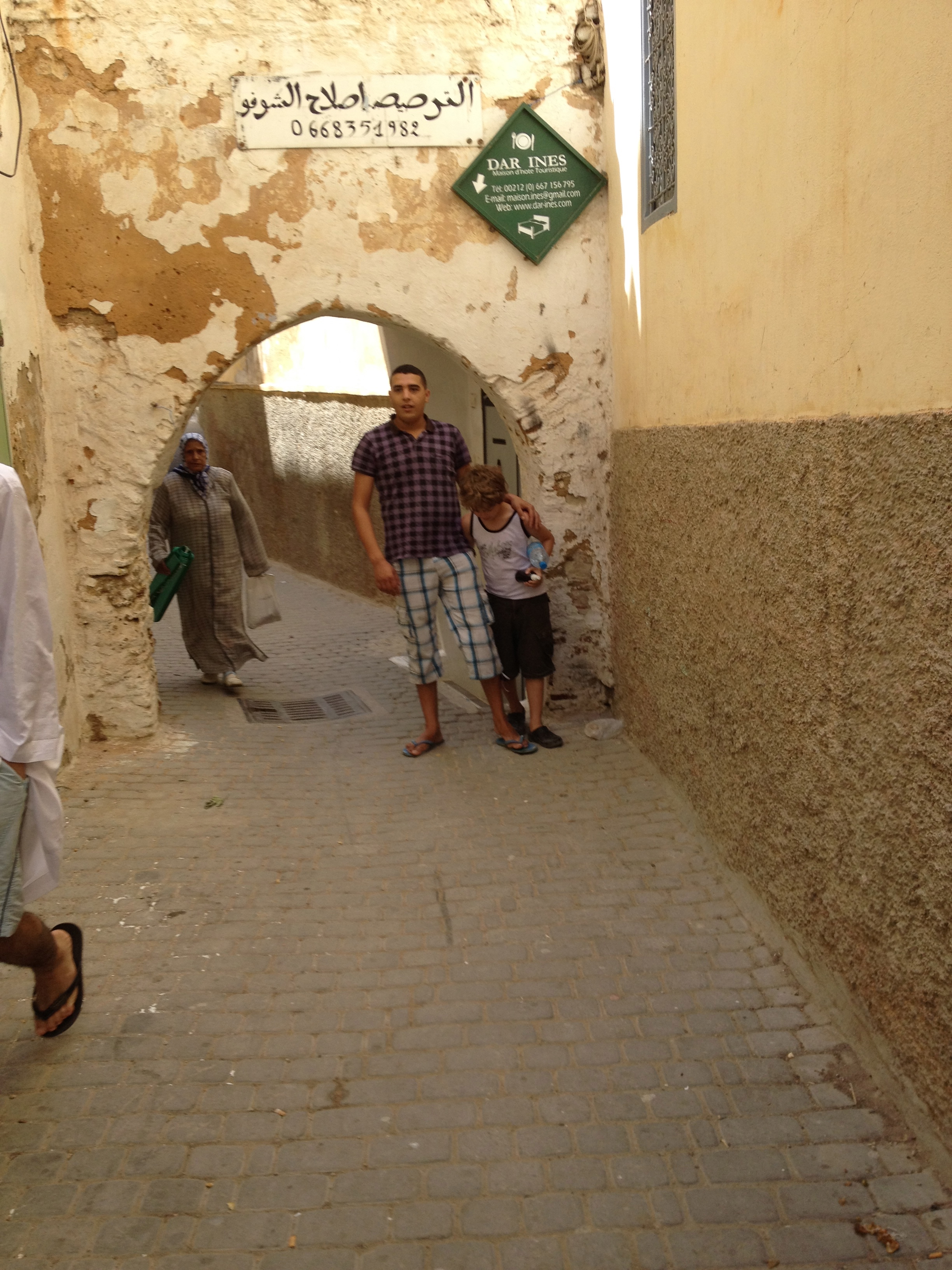
Our guide gets along well with Explorason. We find this wherever we go. He seems to be well accepted by the men.
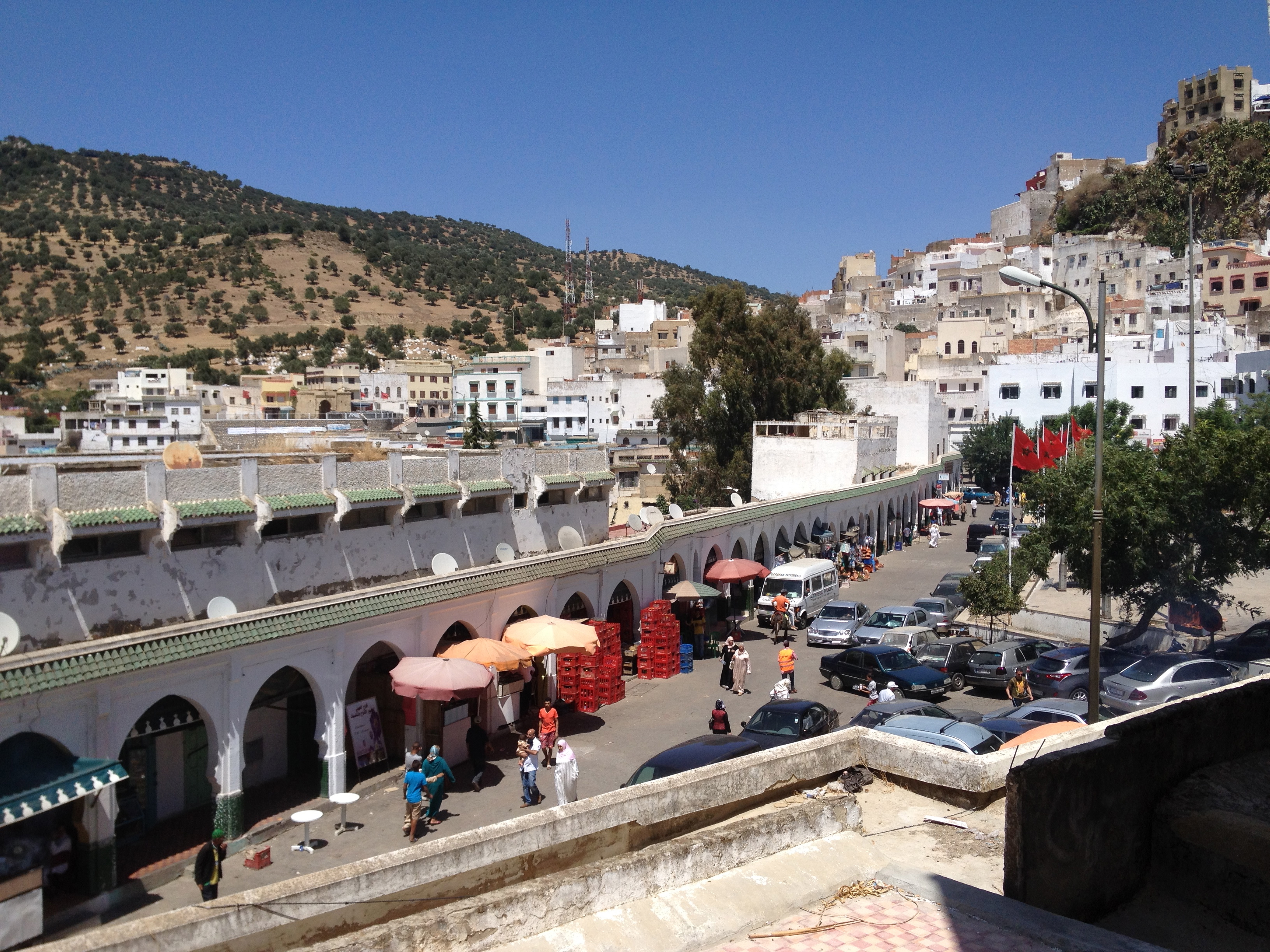
Here in the distance is the main area and shops are on both sides.
It is time to leave and go back to Meknes. We are hot and happy. We have learned so much. We have not bought any souvenirs or trinkets, but we are richer in wisdom. Something travel gives us that is very precious, and lasting.
Questions and Comments
- What fascinates you about Morocco?
- What do you make of their culture?
- Do you have any suggestions or feedback regarding my articles?
- Do share your comments with us below.
